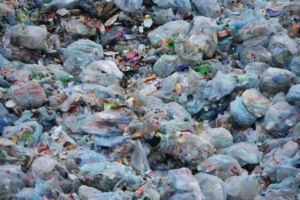News
Denmark looking to ban thin plastic bags
This article is more than 7 years old.
Initiative part of government’s plastic strategy

Plastic bags are a menace to nature (photo: Pixabay)
The government is in favour of banning the thin plastic bags customers get at kiosks, pizzerias and greengrocers, according to Politiken newspaper.
The prospective ban is part of the government’s plastic strategy, which seeks to dramatically reduce Denmark’s consumption of plastic bags.
“We need to move away from the ‘use and throw away’ culture that we probably have embraced a little too much in terms of plastic bags,” the environment and food minister, Jakob Ellemann-Jensen, told TV2 News.
“These thin plastic bags that are common in pizzerias and not very recyclable – we need to stop using them. It’s inefficient and negligent. We must become much better at reusing the thicker plastic bags when shopping.”
READ MORE: Denmark supports new EU plastic ban
Waiting on the strategy
The government will soon present its plastic strategy to Parliament – a strategy that includes obligatory payments for thicker plastic bags.
Henrik Beha Pedersen, the founder of interest organisation Plastic Change, was positive about the news. He believes that obligatory payments for the thicker plastic bags will force Danes to think more about whether they even need the bags.
“These bags are the ones found in turtles and whales in the ocean. We simply use too much plastic and we don’t consider the impact because the bags are free,” Pedersen told TV2 News.
“I hope this initiative isn’t the only one in connection with the forthcoming plastic strategy. I also hope there are some thoughts geared towards using recycled plastic to produce the bags in the future. I have yet to see that from the minister, but the EU actually demands us to recycle half the plastic we use today by 2030.”
About a month ago, Denmark said it was in support of a new EU proposal that aims to ban plastic disposable plates and cutlery, straws, q-tips and balloon sticks, as well as a number of other initiatives geared towards reducing the use of plastic.










































